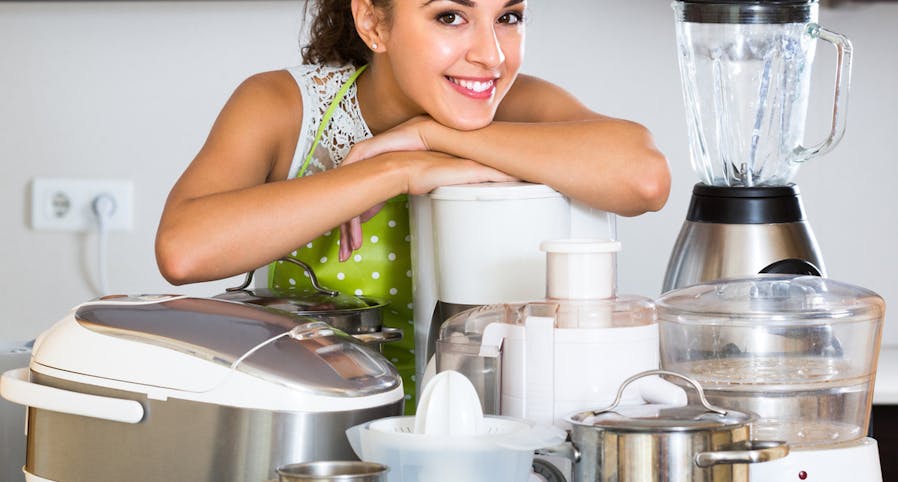7 Common Meal Prep Mistakes and How to Avoid Them
Preparing meals that can help you reach your health goals requires knowing what not to do. Here are common meal prep mistakes and how to avoid them.
The average American spends about $3,000 eating out per year. Think of how much money could be saved by eating at home!
But eating at home means prepping your meals before, which can be challenging for people who live busy lives. When you know how to meal prep well, it can be a life (and financial) saver.
Making a weekly meal plan is the best place to start, but what are some meal prep mistakes you need to avoid to make sure everything goes smoothly? If you're ready to start eating at home and saving money, here are seven meal prep mistakes you need to know.
1. Empty Pantry
When you go to meal prep, you want to have all of your ingredients and supplies ready. However, if you find that your pantry is bare, you may waste time by needing to make a list and a grocery run.
One of the best ways to avoid this is to keep your pantry stocked with essentials like rice, beans, oatmeal, canned foods, baking supplies, spices, and so forth. Stocking your freezer with frozen fruits or veggies is a time-saver, too. This way, you know what you have, and it makes prepping easier.
2. Lack of Timing
For some people, their lives are incredibly busy, and you might think that it's best to do all your prepping in one day. However, this isn't always the best use of time for everyone and could cause more stress, chaos, and discouragement.
Meal prep according to your schedule and time constraints. When it's easier to fit meal prepping into your schedule, you're more likely to stick with it.
If you're really pressed for time, hiring a meal prep service might be better for you. A meal prep service sends you fresh meals for you to cook on arrival, and they're portioned and customizable.
3. Storing Properly
Learning how to store meals the right way is key to keeping them fresh and tasty. If you don't store them well, you run the risk of spoiling food and wasting it.
There are plenty of ways to store your meals. One of the most popular ways is by using containers with dividers for each side. You can even use smaller containers for dips or dressings if you need to take your lunch with you.
Don't forget about using plastic or aluminum wrap and covering the food completely. If you're going to eat your food several days from prepping, be sure to label and date the day it was made.
4. Planning
Another big mistake that many meal planners make is planning. Planning is essential to successful meal prepping, and without it, you're likely to feel lost and confused.
Planning requires shopping sales (if you're on a budget!), using recipes for healthy meals, and doing all of these things ahead of time. Take time out of your busy week to go over what recipes you know, what you might like to have for dinner, and plan out how you're going to meal prep for the week.
5. Freezing
Sometimes when you meal prep, you might end up with more than you thought! Instead of storing them in containers, and running the risk of not eating them in time, consider freezing them for future use.
Freezing meals is a great method to incorporate into your meal prepping. By freezing meals you've already made, you save time and money, and most frozen meals can last for up to a month in the freezer. Simply allow the meal to thaw 24 hours or so before you eat it, and you're all set!
6. Under Prepping
Just like over prepping, you might succumb to under prepping. This means that you did not make enough of your meals to cover what you need for the next few days or the week.
One way to avoid under-prepping is by planning appropriately, especially if you have a large family. You'll want to account for portion size for each person and make sure you have just enough or more than enough. Remember, you can always freeze meals if you need to!
8. Creating Balanced Meals
While it might be convenient to throw pre-packaged food in your meal prep, if you're not eating a well-balanced diet, this could be damaging to your health.
For meal prepping, you want to make sure you have a source of protein, plenty of fruits and vegetables, and complex carbohydrates. By incorporating healthier choices, meal prepping can be a great way to keep your body healthy and strong.
Of course, when necessary, you could add pre-packaged foods, but try to keep them as healthy as possible.
7. Defining A Goal
Many people jump into meal prepping without thinking about why they're doing it. One of the ways you can help streamline your meal prepping is by defining your goals. What are your reasons for meal prep: to get healthier? To save money? Feed your family on a budget? Try new recipes?
When you have clearly defined goals, you will find that your prepping will be easier to accomplish because you'll work towards these goals. Without a defined goal, it's easy to get lost in meal prepping.
Meal Prep Mistakes Avoided
These are some of the meal prep mistakes that cause people to be discouraged. By knowing what not to do, you can plan and prepare your meals accordingly to save time and money!
Are you looking for a meal prepping service that caters to your nutritional needs? Our service is what you're looking for! Visit our menu page today to see all of our delicious options.

